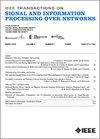基于学习的控制感知异常检测的可扩展分散算法
IF 3
3区 计算机科学
Q2 ENGINEERING, ELECTRICAL & ELECTRONIC
IEEE Transactions on Signal and Information Processing over Networks
Pub Date : 2023-09-11
DOI:10.1109/TSIPN.2023.3313818
引用次数: 2
摘要
我们解决了从给定的集合中顺序选择和观察过程以发现其中的异常的问题。决策者在任何给定时刻观察过程的子集,并获得相应过程是否异常的噪声二进制指示符。我们开发了一种异常检测算法,该算法选择在给定时刻要观测的过程,决定何时停止观测,并宣布对异常过程的决定。检测算法的目的是以超过期望值的精度识别异常,同时最小化决策中的延迟。我们设计了一种集中算法,其中进程由一个公共代理联合选择,以及一种分散算法,其中是否为每个进程选择进程的决定是独立的。我们的算法依赖于马尔可夫决策过程,该过程使用每个过程是正常或异常的边际概率来定义,条件是观测值。我们使用深度行动者-批评家强化学习框架来实现检测算法。与之前关于这个主题的工作不同,我们的算法在进程数量上具有指数复杂性,我们的计算和内存需求在进程数量方面都是多项式。我们通过将这些算法与最先进的方法进行比较,通过数值实验证明了这些算法的有效性。本文章由计算机程序翻译,如有差异,请以英文原文为准。
Scalable and Decentralized Algorithms for Anomaly Detection via Learning-Based Controlled Sensing
We address the problem of sequentially selecting and observing processes from a given set to find the anomalies among them. The decision-maker observes a subset of the processes at any given time instant and obtains a noisy binary indicator of whether or not the corresponding process is anomalous. We develop an anomaly detection algorithm that chooses the processes to be observed at a given time instant, decides when to stop taking observations, and declares the decision on anomalous processes. The objective of the detection algorithm is to identify the anomalies with an accuracy exceeding the desired value while minimizing the delay in decision making. We devise a centralized algorithm where the processes are jointly selected by a common agent as well as a decentralized algorithm where the decision of whether to select a process is made independently for each process. Our algorithms rely on a Markov decision process defined using the marginal probability of each process being normal or anomalous, conditioned on the observations. We implement the detection algorithms using the deep actor-critic reinforcement learning framework. Unlike prior work on this topic that has exponential complexity in the number of processes, our algorithms have computational and memory requirements that are both polynomial in the number of processes. We demonstrate the efficacy of these algorithms using numerical experiments by comparing them with state-of-the-art methods.
求助全文
通过发布文献求助,成功后即可免费获取论文全文。
去求助
来源期刊

IEEE Transactions on Signal and Information Processing over Networks
Computer Science-Computer Networks and Communications
CiteScore
5.80
自引率
12.50%
发文量
56
期刊介绍:
The IEEE Transactions on Signal and Information Processing over Networks publishes high-quality papers that extend the classical notions of processing of signals defined over vector spaces (e.g. time and space) to processing of signals and information (data) defined over networks, potentially dynamically varying. In signal processing over networks, the topology of the network may define structural relationships in the data, or may constrain processing of the data. Topics include distributed algorithms for filtering, detection, estimation, adaptation and learning, model selection, data fusion, and diffusion or evolution of information over such networks, and applications of distributed signal processing.
 求助内容:
求助内容: 应助结果提醒方式:
应助结果提醒方式:


